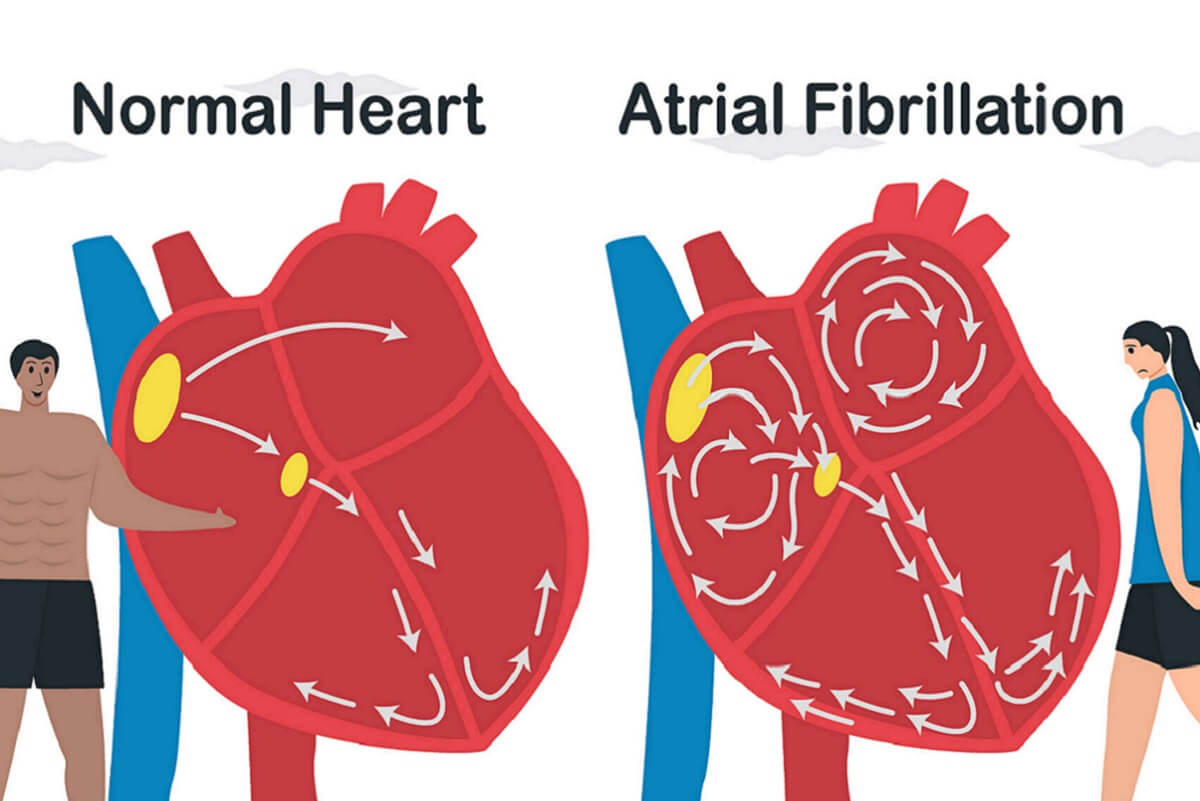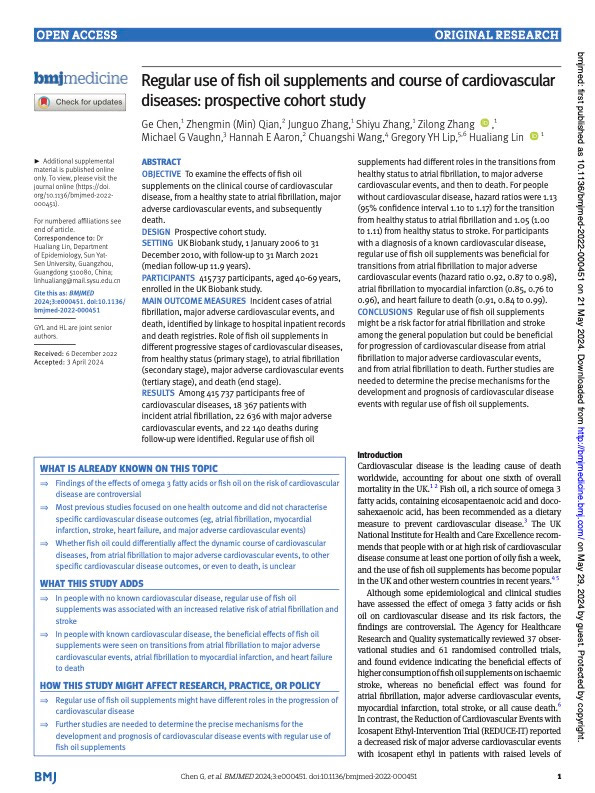Is Fish Oil Really Bad for Your Heart? The Truth Will Surprise You!
The real benefits of fish oil vs. the heart risk hype.
Neuro Athletics is a 2 x weekly newsletter that breaks down the medical and scientific practises that you need to perform at your peak. Subscribers include professional athletes, athletic trainers, coaches and casual fans. So if you are not already a subscriber, sign up and join 67,000+ others who receive it directly in their inbox each week — it’s free.
Story at a Glance:
Importance of Omega-3s: EPA and DHA, found in fish oil, are vital for brain health and longevity, popular among high performers.
Mixed Study Results: A UK Biobank study showed fish oil users had a 13% higher risk of Afib but lower risks of severe heart issues once Afib developed.
Heart Health Benefits: Fish oil can benefit those with cardiovascular conditions, reducing risks of heart attacks and death from heart failure.
Personalized Nutrition: Companies are developing tailored supplements based on individual health data for better nutrition and health optimization.
Consumer Caution: The supplement industry often has exaggerated claims, so consumers should seek transparent, research-backed products and assess risks and benefits carefully.
Today’s Newsletter Is Brought To You By Eight Sleep!
I’ve been using an Eight Sleep mattress for several years now, and it’s one of the best products I’ve ever purchased.
Their thermo-regulation technology — the bed gets colder or warmer throughout the night depending on individualized health metrics — helps me fall asleep faster, get higher-quality sleep, and wake up feeling energized.
Use code NEURO to get $200 off Pod 4 and $350 off Pod 4 Ultra.
Neuro Athletes,
Have you heard that fish oil supplements might be bad for your heart? Recent headlines claim they could increase the risk of atrial fibrillation (AFib), a condition where your heart beats irregularly, potentially leading to strokes.
But don't stop taking your fish oil just yet! In this article, we'll uncover the truth behind these claims. I'll explain what AFib is and how fish oil benefits your heart. We'll look at the study that caused the alarm and why its conclusions might not be as scary as they seem.
I'll discuss the difference between relative risk and absolute risk and explore other evidence showing that fish oil actually protects your heart in many ways.
By the end, you'll see why fish oil supplements are still a good choice for heart health and why you shouldn't always believe the hype.
The Fish Oil Controversy: Debunking the Myth of Atrial Fibrillation Risk
Fish oil supplements have long been touted for their myriad health benefits, particularly for cardiovascular health. However, recent headlines have sparked concerns about their potential link to atrial fibrillation (AFib), a serious heart condition. But before you toss out your omega-3 supplements, let’s dissect the evidence and separate sensationalism from science.
The Sensational Headlines
A recent study grabbed headlines with claims that fish oil supplements could increase the risk of atrial fibrillation (AFib) and stroke. Media outlets pounced on these findings, warning healthy young people to avoid fish oil supplements. However, a closer examination reveals that the sensational headlines are not only misleading but also misrepresent the true implications of the study.
Understanding AFib and Fish Oil
Atrial fibrillation (AFib) is an irregular heartbeat that can lead to severe cardiovascular complications, including stroke and heart failure. Omega-3 fatty acids, found in fish oil, are known for their anti-inflammatory properties and their ability to improve blood pressure and lipid profiles, thereby reducing cardiovascular mortality. Given these benefits, it's puzzling that fish oil would be implicated in increasing AFib risk.
The Study in Question
The controversial study used data from a UK biobank, an observational study of middle-aged individuals (40-69 years) who self-reported their fish oil supplement usage. The findings suggested a 133% higher relative risk of developing AFib and a 5% relative risk increase in stroke among fish oil users compared to non-users. However, these numbers are based on relative risk, not absolute risk.
Relative vs. Absolute Risk
Relative risk compares the likelihood of an event occurring in one group versus another. Absolute risk, on the other hand, reflects the actual probability of an individual developing a condition over a certain period. The absolute increase in AFib risk for fish oil users was a mere 0.065%, and the stroke risk was just 0.05%. These minuscule increases are hardly cause for alarm, especially considering the cardiovascular benefits fish oil provides.
Fish Oil’s Protective Role
Interestingly, the same study also indicated that fish oil users who did develop AFib had a reduced risk of severe cardiovascular outcomes, such as heart failure and heart attacks. This protective effect was conveniently omitted from sensational headlines, which instead focused solely on the marginal increase in AFib risk.
Moreover, a prior study from the same biobank cohort found that fish oil users had significantly lower risks of coronary heart disease, kidney stones, liver cancer, total mortality, cardiovascular-related mortality, dementia, inflammatory bowel disease, and fractures.
Out of 14 endpoints measured, fish oil showed positive benefits in 12, no change in one (stroke risk), and a slight increase in one (AFib).
Contrasting Evidence
Clinical trials offer more robust evidence than observational studies. A meta-analysis of 42 clinical trials found that only seven identified a potential increase in AFib risk with omega-3 supplementation, and just three showed statistically significant results. For instance, the REDUCE-IT trial, which involved high doses of EPA (a component of omega-3), found a 1.4% increase in AFib risk but a 26% reduction in non-fatal stroke risk, highlighting the overall cardiovascular benefits.
The Bottom Line
The collective evidence overwhelmingly supports the cardioprotective benefits of omega-3 supplements. While a small subset of studies suggests a slight increase in AFib risk, the absolute risk is minimal, and the overall cardiovascular benefits far outweigh this potential downside.
Fish oil supplements should not be demonized based on sensationalist interpretations of selective data. Instead, they should be recognized for their proven benefits in reducing cardiovascular disease, improving lipid profiles, and potentially offering protection against severe cardiovascular events, even in those who develop AFib.
On the Podcast 🎙️
Over on Instagram
Stay healthy,
Louisa x








